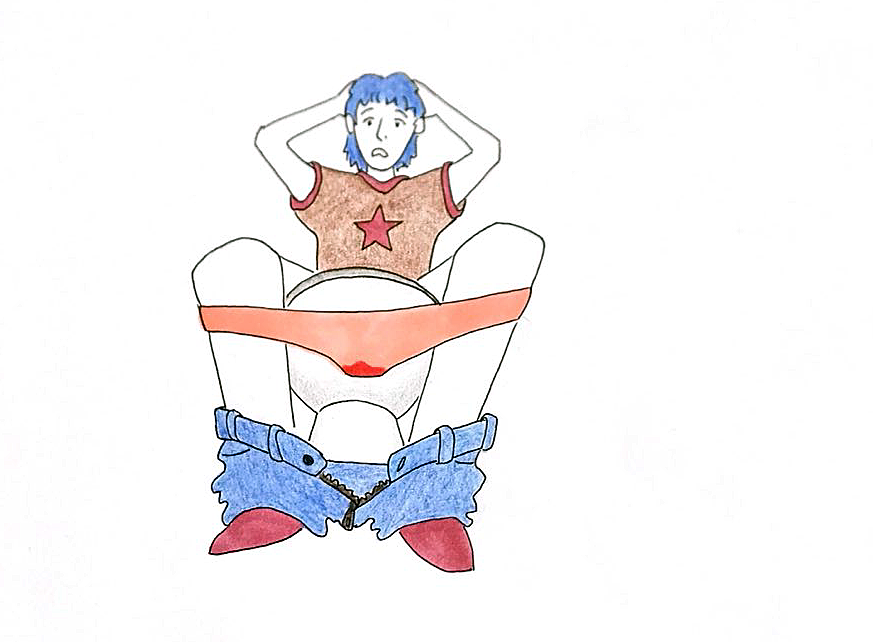Sex Ed(itorial): Debunking Common Period Myths
Breaking the Stigma of Menstruation, one Myth at a Time
1) Tampons will take away your virginity
If anything, this myth reinforces the idea that virginity is a social construct. There is nothing impure about using a piece of cotton that stops your flow from ruining your favorite pair of pants. Many cultures and communities view tampons as taboo because of the idea that tampons could potentially break your hymen and take your virginity.
As for the original definition of virginity, it has been passed around for years, shutting women down for being sexually liberated. Today, virginity is often linked to the intercourse between a man and a woman—excluding the LGBTQ+ community. Tampons have been intrinsically associated with penetration since their creation, putting at an equal level both tampons and male genitalia. Whether someone chooses to wear pads, tampons or other sanitary products, these are purposely meant for periods—menstruation and sex are separate topics!
2) Only women get periods
Respecting people's identities is crucial, especially now that education surrounding marginalized gender identities is becoming more accessible and younger generations feel more confident about coming out.
Many people experience periods—and not all of them are women. Transgender men, nonbinary, intersex and genderqueer individuals (the list goes on) can have periods too.
Advertisements tend to portray cisgender women when promoting sanitary products, which can be alienating since some individuals don’t feel part of the accepted norm. Using gender-inclusivity language when talking about periods, particularly on a university campus where students are more likely to face sexism, transphobia and bullying, will create a safer environment for everyone.
3) All women menstruate
Not all women get periods either—there are a variety of exceptions that make this idea a myth. For instance, many cisgender women who experienced menopause no longer have periods. Transgender women don’t menstruate. Additionally, women with underlying conditions, such as polycystic ovary syndrome or premature ovarian failure might not menstruate either. Other causes like eating disorders and specific medications may stop or delay periods. There are also scenarios where women take certain forms of birth control to stop their periods altogether.
4) Period blood is unsanitary
The stigma that period blood is dirty or unhygienic has been around for decades. Individuals have been taught to be embarrassed about bleeding, when this bodily function is normal and perfectly healthy. During menstruation, the uterus lining sheds blood and tissue, a natural process in response to not having a fertilized egg. All of our organs contain blood, so why is period blood any different?
A part of this misconception comes from the idea that the color of your period shows how clean it is—but the range in color actually shows the blood’s level of oxidation. During periods, blood and tissue are excreted, so they are usually less liquidy than regular blood cells. Yet, red blood is still preceived as taboo and dirty. Up until 2020, when Kotex released a period ad with blood-like liquid, the infamous series of ads portraying blue liquid on sanitary products were a perfect example of the stigmatization of periods.
5) PMS isn’t real
Premenstrual syndrome is very real, and it affects three out of four women. Society uses PMS pejoratively to justify supposedly emotional behaviors in people with periods.
PMS is often associated with moodiness and irrationality—but the range of symptoms covers much more than that and varies for every menstruating person.
Premenstrual symptoms include tiredness, headaches, low mood and tender breasts. Some people can experience mild symptoms, some more prominent symptoms, and others none at all. Regardless of your experience with PMS, this myth invalidates people who menstruate and those who don't menstruate, common with IUDs. This can often discourage them from seeking help, even in extreme cases such as endometriosis, a painful disorder where cells from the uterus' inner lining develop outside the uterus.
While progress is being made surrounding period myths this setback continues to perpetuate the lack of menstrual products as well as educational resources for young people with periods. These myths are only some of the many out there, and because they are perpetuated throughout generations, it makes it harder for many governments to validate the need for sanitary product funding and proper menstrual education. By openly talking about periods, we can end this worldwide stigma surrounding periods.
This article originally appeared in Volume 43, Issue 4, published October 12, 2022.







_600_375_90_s_c1.jpg)